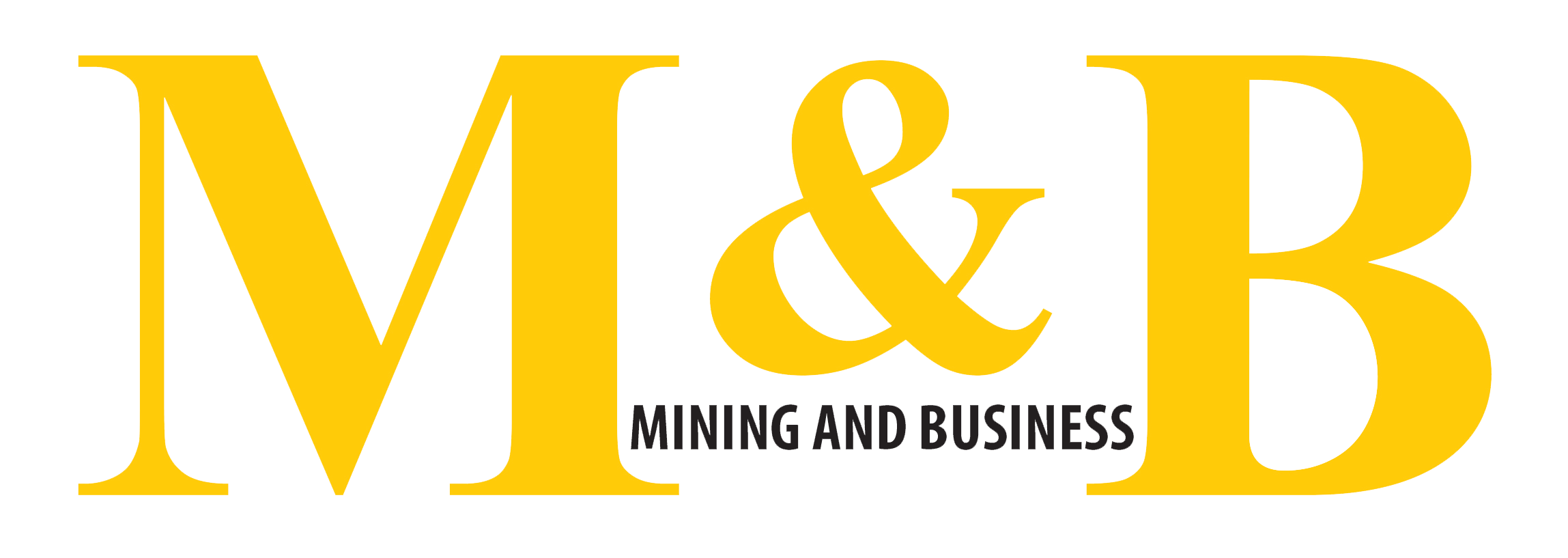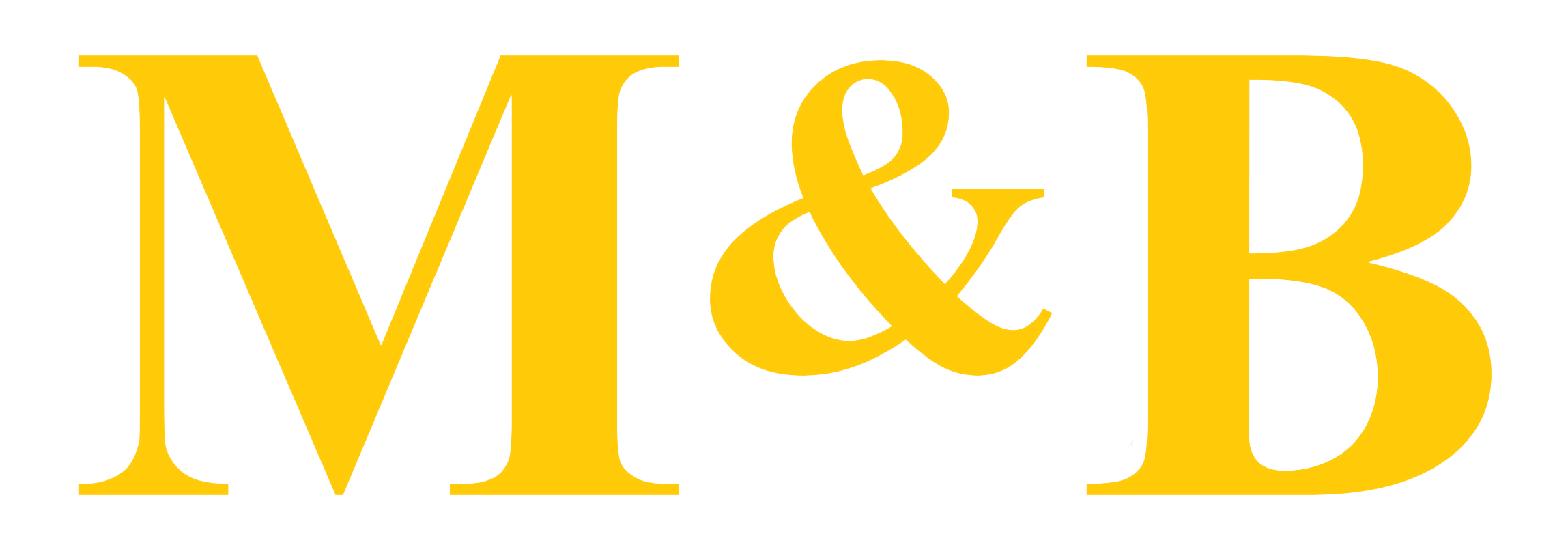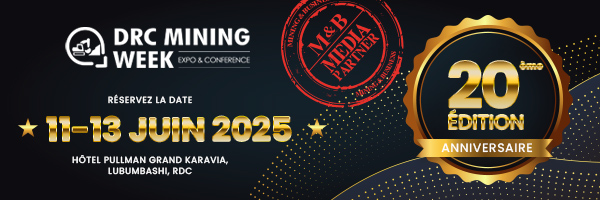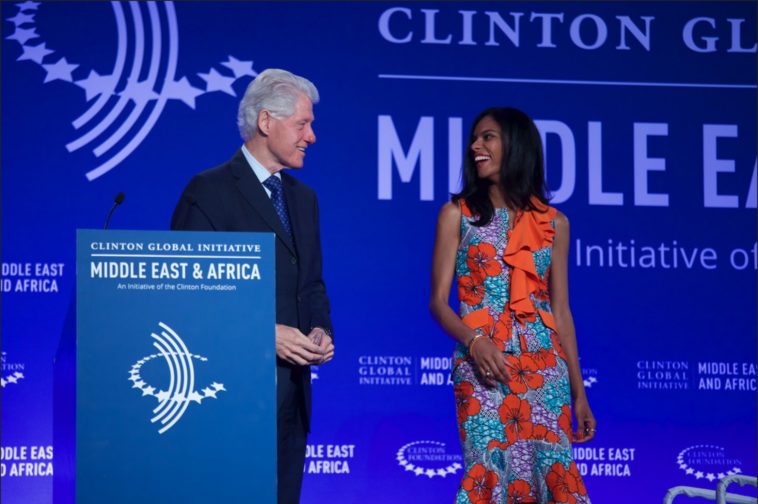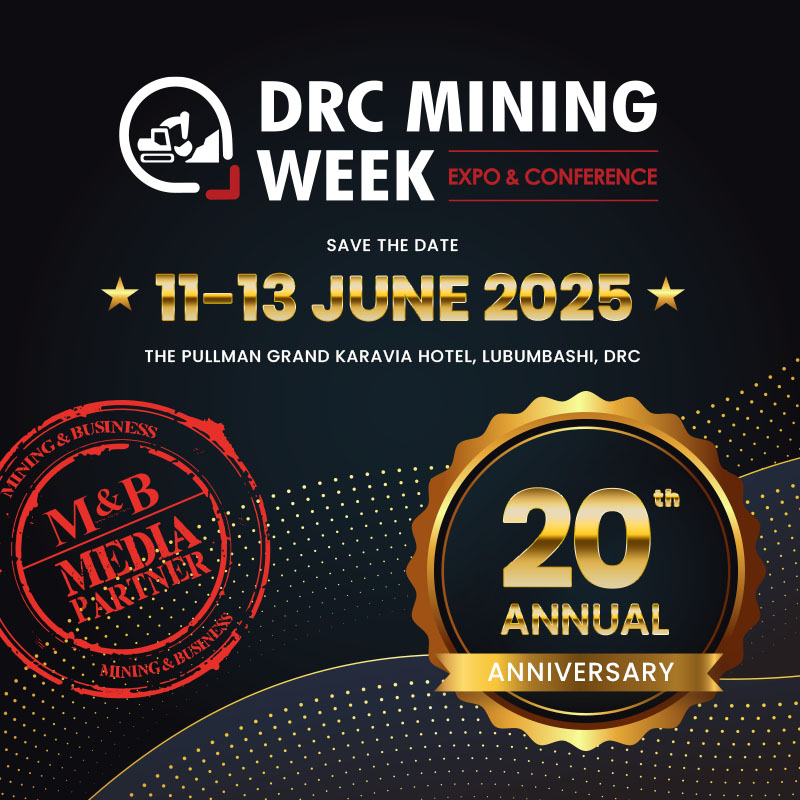“Girls will be the leaders of tomorrow, the engine of change in Congo”
On the occasion of Malaika’s 15th anniversary celebration, M&B Magazine met with Congolese philanthropist Noëlla Coursaris Musunka and founder of the Malaika Foundation. As March is universally dedicated to women, our publication is particularly pleased to host this great interview for the immense regard and respect for Noëlla Coursaris Musunka’s work, her commitment to Congolese soil, and her willingness to work for her country through girls’ education, sustainability and community transformation.
M&B: Hello Noëlla Coursaris Musunka. Who are you?
I am a mother of two, a philanthropist, founder of Malaika, and I also sit on the board of directors of the L’Oreal Foundation and Amade, the association of Princess Caroline of Monaco.
Noëlla is a fighter, a warrior, a committed person, passionate in everything she does, a person who believes in her country, in the emancipation of the young girl, but who believes enormously in building the next generation through education. Malaika has been developing for 15 years now thanks to a great team.
You are Congolese, strongly attached to your country. Like many, you are aware that the development of the DRC must be based on a conscious and trained generation. And this made you want to commit yourself to accompany the training of a generation. I imagine that this was the idea that led to the creation of Malaika. How did the story start?
First of all, the story is personal. I was born in the Congo, my father died when I was five years old, I was an only child. My mother had no way of keeping me, so she decided to send me to Europe so that I could study. For many years, I was angry at her, but when I came to see her again 13 years later, it was an awakening. I found my country and my mother who is an exceptional woman, humble, passionate, with such a good heart. Discovering her was truly magical. At the same time, I discovered my origins, my culture and my country: the Congo is a fascinating country.
In what you say, we feel that there is a transmission of values that takes all its meaning and is embodied in your altruism. At least what you feel for the people you meet in your country. Is this what makes you want to get involved or do you think it is a legacy from your family or your mother?
Exactly, I had a very difficult childhood. With time, I was able to transform this suffering into an opportunity for the present youth. And today I am the mother of two children, it is as if my story is being built with them. My son is twelve years old, this is the 24th time he has returned to the Congo, and my daughter is eight. My husband is English, my children eat foufou by hand, they discover their country, their Congolese culture, and accompany me everywhere in the villages and in Malaika.
I am happy to see them discover Africa, the Congo and its values. They don’t see poverty in the same way as we do, they play with the children and my son and daughter advise me on many things. The word of the children is extraordinary. It is phenomenal to discover the country every time I come with my children.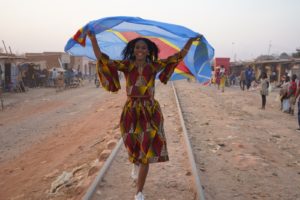
You realize that you have a part to play in building your country and you decide that you need to create a structure to take care of a community of children and accompany them through the path of education to give them a future. We know how important girls are in the family structure. What do you think about it?
15 years ago I created Malaika, at that time schools were not free in Congo. When a family has the means, the first thing they do is to send their boys to school. I think it is very important to invest in young girls, hence the creation of the Malaika academy.
We started with 104 students (Josiane, Frida, Marceline…) and now we have 430 students, all with different personalities and strong ambitions. Our school has been built in stages. They all arrive at the age of five until they are 18. It is moving to see our girls evolve physically, intellectually, because I have known them all since they arrived at the age of 5 and now the oldest are 17, in July they will be the first class of girls to leave Malaika.
All our programs in Malaika are free, for example we serve them breakfast and lunch. The nutritional meal is very important, as is our educational program which includes basic subjects, but in addition we bring a real emphasis on technology like coding. When there was the covid-19 crisis, our girls set up 3D printing themselves, they made more than 2500 surgical masks that were distributed to 60 hospitals in Congo. We diversify our programs with music, art and sports. Our girls have won several tennis competitions playing in Lubumbashi, Zambia… Some are selected to join soccer teams, they are emancipated through all the courses we offer them as well as the opportunities they have.
They will be the leaders of tomorrow, the engine of change in Congo. They will bring their first stone. So many dreams they want to be journalists, chemists, soccer players, engineers, managers of mechanical workshops. If they were not at Malaika, because we work in a rural area, most of them would already be married or pregnant.
For us it is very important to have a generation that is aware of its values. You can’t be a leader without having values. Today’s leaders have built these values of compassion, they are leaders who are often “out of the box”, who have a human dimension that makes them great leaders.
You realize that you have a part to play in building your country and you decide that you need to create a structure to take care of a community of children and accompany them through the path of education to give them a future. We know how important girls are in the family structure. What do you think about it?
15 years ago I created Malaika, at that time schools were not free in Congo. When a family has the means, the first thing they do is to send their boys to school. I think it is very important to invest in young girls, hence the creation of the Malaika academy.
We started with 104 students (Josiane, Frida, Marceline…) and now we have 430 students, all with different personalities and strong ambitions. Our school has been built in stages. They all arrive at the age of five until they are 18. It is moving to see our girls evolve physically, intellectually, because I have known them all since they arrived at the age of 5 and now the oldest are 17, in July they will be the first class of girls to leave Malaika.
All our programs in Malaika are free, for example we serve them breakfast and lunch. The nutritional meal is very important, as is our educational program which includes basic subjects, but in addition we bring a real emphasis on technology like coding. When there was the covid-19 crisis, our girls set up 3D printing themselves, they made more than 2500 surgical masks that were distributed to 60 hospitals in Congo. We diversify our programs with music, art and sports. Our girls have won several tennis competitions playing in Lubumbashi, Zambia… Some are selected to join soccer teams, they are emancipated through all the courses we offer them as well as the opportunities they have.
They will be the leaders of tomorrow, the engine of change in Congo. They will bring their first stone. So many dreams they want to be journalists, chemists, soccer players, engineers, managers of mechanical workshops. If they were not at Malaika, because we work in a rural area, most of them would already be married or pregnant.
For us it is very important to have a generation that is aware of its values. You can’t be a leader without having values. Today’s leaders have built these values of compassion, they are leaders who are often “out of the box”, who have a human dimension that makes them great leaders.
We were just talking about this first generation of girls. Tell us a little more about Malaika. The educational program, the sports as well which are a big part of the school activities. And what are the projects you have implemented with your community within the school?
In 15 years, Malaika has become an ecosystem that can be duplicated. Last September, during the UN week in New York, we had the honor of presenting the blueprint, which is Malaika’s guideline. That is to say that we shared our success model, our challenges, our governance… Moreover, we are pleased to welcome in March in Kalebuka an organization that wants to be inspired by Malaika’s model and build one of our programs in Benin. This guide and the videos designed for this purpose can be downloaded, or a site visit can be made, supported by meetings with our local management.
Malaika is a school we built and manage, a community center we built and run. The technical classes, the sports field, 28 water wells that we have built in different villages in Congo. Why the water wells? Because even before the school was built, Kalebuka had almost no access to drinking water, limited access to electricity, no access to roads. Our water wells impact more than 40,000 people per year.
About the community education center, when FIFA decided in 2010 to do the world cup in South Africa, they decided to do 20 community centers in Africa and we were the 19th community center they chose, the only one in Congo. It’s great because these are sports programs for good, for social, and at the same time, we have a youth, young parents, young adults who come to learn digitalization, they learn to read, write, sewing, but also lifestyle hygiene.
But the demand is so strong that we have developed other constructions, we have more than 5000 people a year who come to study at our community center, we have our own agriculture farm, where we also teach organic farming to the youth, organic farming. Last year we started technical classes with the Caterpillar Foundation and Congo Equipment in heavy duty auto mechanics and building electricity, dedicated to students from 17 to 35 years old.
My dreams would be to do plumbing, carpentry, framing. We need specific skills, an excellent plumber, mechanic, carpenter….. We hope that our young people who will leave our technical centers will have the chance to find work in mining companies, technical companies, construction companies, etc.
So, the Malaika ecosystem is the school, the community center, the technical classes, the solutions that come from access to water, agriculture, and everything else that we do around it. We’ve distributed over 14,000 mosquito nets, over 10,000 balloons. These are incredible projects that have a direct impact, and 80% of our donations go to programs. Malaika is my way of contributing to my country and my continent all that I have received, all that I am, and I don’t take any salary from Malaika. Malaika has had the privilege of working with incredible partners from all 4 corners of the world over the years to support Congo and we are built on an exceptional team.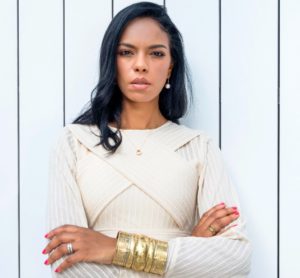
For those who had the chance to see the beginning of Malaika, the result after 15 years is impressive, the explosion of the project and especially its impact for the community. In 10 years, it will be a generation of Congolese, how do you see your country, its development? How do you see it, how do you feel about it?
A lot has been accomplished, but there is still so much work to do. I think we need to continue to change the “mind set”. There is an incredible youthfulness that never stops. They say that New York and London never sleep, but I think you have to add the Congo. The mothers are there, selling their coal, vegetables; the fathers are there, they are taximen, etc.
These are the people who want it. I think our role is to make sure that these residents deserve a better Congo, especially in the investment of education, technology, infrastructure, water, electricity. They deserve that we are always there and that we work so that the Congo becomes this giant in Africa, that it has its place, its dignity, and becomes this showcase that the country deserves.
We are proud to be Congolese, we must teach our history in schools, the history of the Congo, we must teach the history of Africa and its heroes, the history of Mandela, Steve Biko, Lumumba, all these nationalists who fought for us, etc.
In 10 years, many of our young people will come out of Malaika, they will be our ambassadors, they will have key jobs in this society, in this Congo. I look forward to seeing them in important positions, but also to seeing them change their country, but also their communities. Finally, we never forget that we push everyone to have careers, to have a place in companies, but we must also be happy with ourselves, it is very important.
We have seen you in several publications, several spots, in campaigns. Tell us about the way you finance your foundation because it is the art of war if you allow me this expression.
After Covid-19, the war in Ukraine, and right now we are living a big economic crisis, donations are really down, it’s not easy, and there are a lot of foundations in the world.
Why do people give to Malaika? A lot of people have come to Malaika, individual donors, as well as foundations. They have remained very committed to Malaika’s mission and have been impressed with our work, our passion. We have brought to Kalebuka, Muhammed Ali’s daughter – Khaliah Ali, but also the singer Eve who is one of our Ambassadors, CNN, Fally Ipupa, Innocent, the CEO of Caterpillar, Lokua Kanza and so many others have come to Malaika and volunteered.
I would like Malaika to be recognized by its legacy, and all these stars of Malaika. I want people to be attached to what we are doing and continue to contribute, to the change we are bringing. Our donations are raised through individual donations, local donors, international donors, foundations, companies, and also through partnerships with some fashion brands.
Fashion has changed, it has evolved, it’s much more inclusive. They need muses who have a message, but also personalities who do actions. For example, last year I was chosen for the Piaget campaign, a magnificent campaign that highlighted mentorship with our female students. I also worked for example with the brand Roksanda, an exceptional woman, an architect who became a designer. The entire design of the photo shoot set was created by our students. We chose the collection together which was sold on Outnet an online platform. A certain percentage was donated to Malaika for our programs.
I love working in fashion, but to create, to choose the collection that will come out, to create the campaign. It also happens that several muses are part of the campaign. These are strong messages about education, women’s empowerment, women’s voice, but also unity.
What is your message to potential donors?
There are so many ways that you can contribute to Malaika and above all let’s continue to work together for the Congo, for the Africa that we all dream of! May its children live there and raise their children with dignity. We talk a lot about the minerals of the Congo, but the greatest wealth is the human capital, especially the capital of today’s youth which is exceptional.
Come and visit Malaika in Kalebuka, offer your different skills through volunteering. We host a monthly Malaika Talk, where our guests talk about their careers, challenges and successes, and one of our students moderates the conversation. Your donations are welcome, in kind or financially. Every September is back-to-school time, and school supplies are always needed. Sponsor one of our students at school or one of our vocational programs, sports, stem or simply make a donation on the website, or run a donation marathon…. There are so many ways to help and we are always listening if you have ideas.
Interview by Marie-Aude Delafoy – Lubumbashi August 2022
Contact Malaika: [email protected] – – www.malaika.org
Follow Malaika on social networks @malaikadrc
